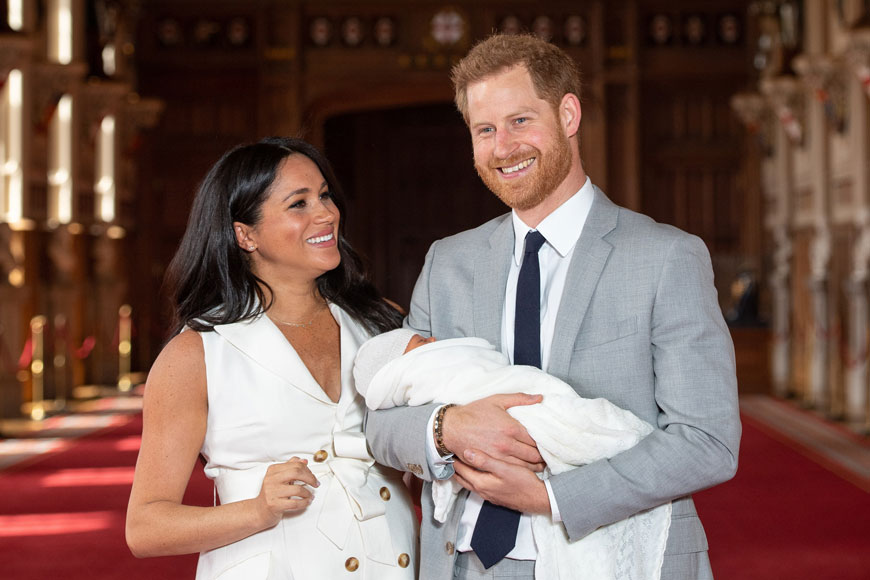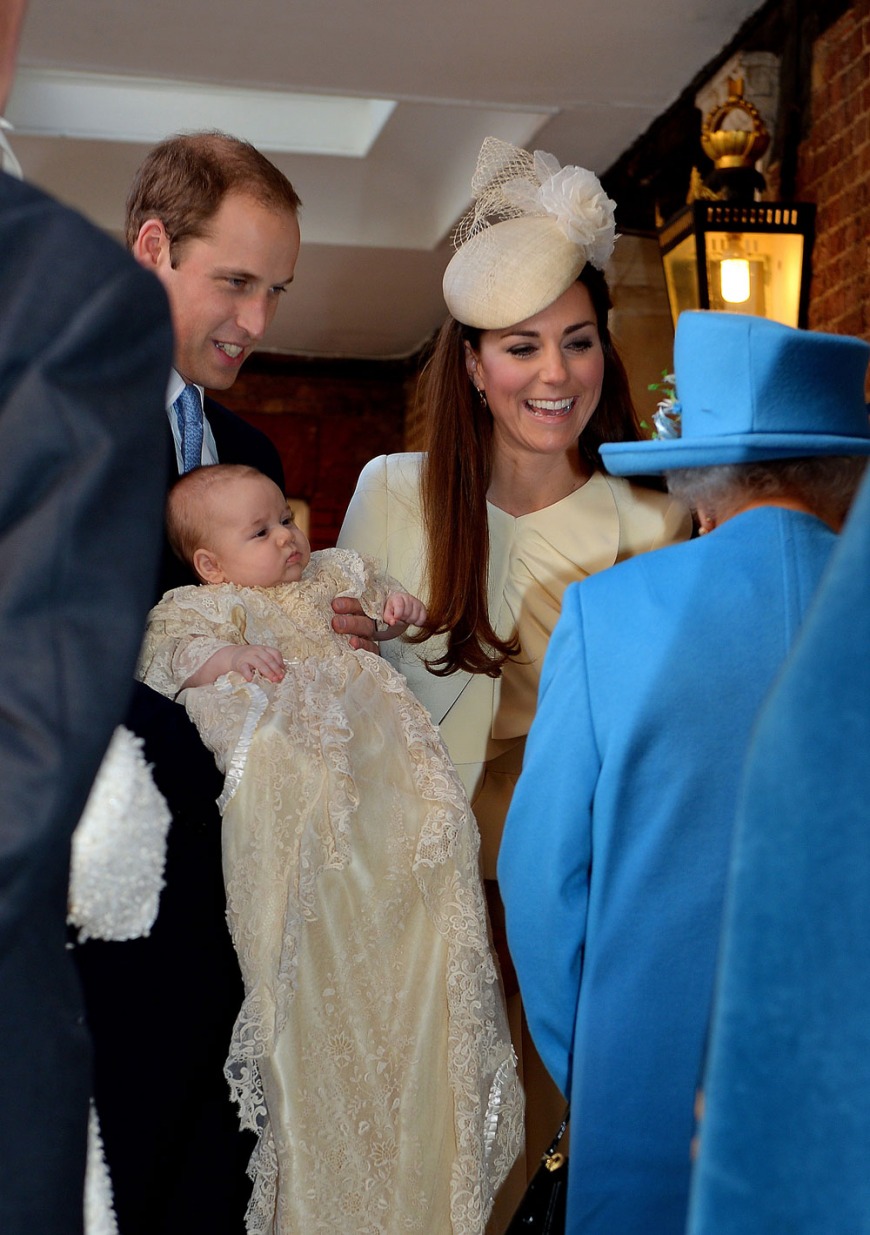4 Great Ways to Welcome A Baby Into the World
We look at the religious and non-religious options for celebrating a baby’s arrival
8 July 2019
Maebelle

All Credits: PA
There’s no family that has to stick with tradition more than the royal family, and as with all royal babies throughout the centuries, the Duke and Duchess of Sussex’s son Archie has been christened.
The Archbishop of Canterbury performed the baptism in a private ceremony for family and close friends of Harry and Meghan in the private chapel at Windsor Castle.
According to the Church of England (C of E), there were 102,000 baptisms and 4,000 services of thanksgiving for the gift of a child in C of E churches during 2017. The majority – 59% of baptisms and 68% of thanksgivings (more of a welcoming of the child to the church) were for infants aged under one year, with 32% of baptisms for children aged one to 12, and 9% for people over that age.
However, welcoming a baby with a church service has decreased in popularity in recent years, as dwindling numbers of people, and particularly the younger generation of childbearing age, are religious. In 2007 the C of E say there were 33,000 more baptisms (135,000) than in 2017, and 2,000 more thanksgiving services (6,000).
But many couples who aren’t religious or just don’t want their baby christened, still want to hold some sort of event to welcome their baby and introduce him or her to their family and friends.
SEE ALSO: How To Apply For A Residency Visa and Passport For Your Newborn In Dubai
Here are some of the main ceremony options, both religious and religion-free, to pick from.
1. Christening

You don’t have to have been christened or baptised yourself, or even be a regular churchgoer, to have your baby or child christened. During the service the child’s parents and godparents make promises to the child, prayers are said and the vicar or priest pours holy water over the child’s head as the sign of a new beginning and becoming part of God’s family. There will usually be a celebration afterwards at a local pub or restaurant.
Rev Canon Dr Sandra Millar, says: “Having a child baptised at a christening is a very special moment for families. It marks the beginning of a lifetime journey of faith, discovering more about God’s love and being part of God’s worldwide family, the church. You don’t have to be a regular churchgoer to find out more about having a child christened – just ask at your local church to find out what’s involved.”
2. Thanksgiving or blessing
Some people prefer to have a thanksgiving or blessing service as a first religious step for their child. The Church says it’s a chance to give thanks to God for the arrival of a child in a family, to pray for them and ask friends and family to offer support for the years ahead. A baptism can follow at a later date, as a child or even as an adult.
The ceremony may take place as part of a main church service, with the parents and child and godparents (if there are any) going to the front of the church and saying a few words, along with the vicar. As with a christening, their will usually be a celebration afterwards.
3. Humanist naming ceremony
An increasingly popular way of welcoming a child without a religious ceremony is through a Humanist naming ceremony. These can be conducted by a celebrant from Humanists UK and can be held wherever the parents want: at home, in the park, the garden, or the local village hall, for example. The ceremony focuses on the child, their personality and their friends and family, and might include readings or poems, parental promises to their child, the appointment of ‘guide-parents’ and perhaps a symbolic action such as planting a tree, signing a certificate or writing in a wish book.
Humanists UK head of ceremonies, Isabel Russo, says: “Every family wants a special occasion to mark the arrival of a new child, and for non-religious people, a humanist naming ceremony is a perfect way to celebrate their love and commitment. A humanist ceremony is a deeply personal event, focusing on the bonds that tie a family together and cementing the relationships that should be so important to the child throughout their life.
“The celebrant will work with the family to handcraft a ceremony tailored to them. These naming ceremonies are becoming increasingly popular as the country becomes less and less religious, and it’s no surprise that their number has grown by 60% over the past five years.”
Humanist Ceremonies estimates a naming ceremony fee to be between £150/AED690.16 and £300/AED1,380.32, but the exact price will vary according to the distance a celebrant has to travel and the complexity of the ceremony.
- Tags:
- royal baby
- Christening
- parenting
- babies

























.png?itok=SvZPqMHH)




.png?itok=uB2ieOR7)












